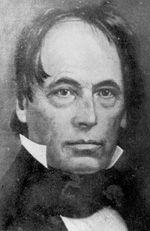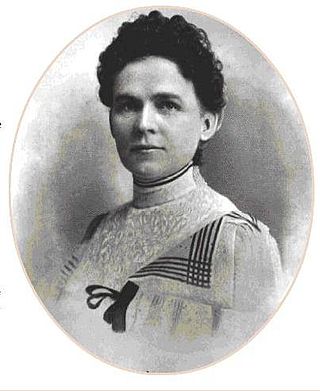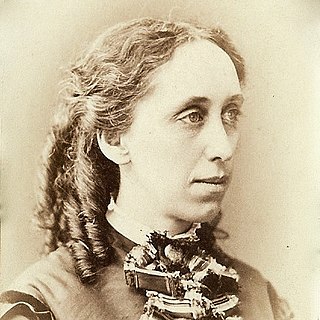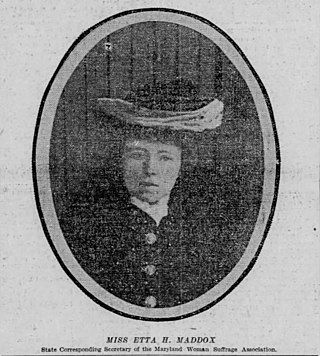
Coös County or Coos County is a county in the U.S. state of New Hampshire. As of the 2020 census, the population was 31,268, making it the least-populated county in the state. The county seat is Lancaster.

Belva Ann Bennett Lockwood was an American lawyer, politician, educator, and author who was active in the women's rights and women's suffrage movements. She was one of the first women lawyers in the United States, and in 1879 she became the first woman to be admitted to practice law before the U.S. Supreme Court. Lockwood ran for president in 1884 and 1888 on the ticket of the National Equal Rights Party and was the first woman to appear on official ballots. While Victoria Woodhull is commonly cited as the first woman to run for president, she was not old enough to run, unlike Lockwood.

The Executive Council of the State of New Hampshire is the executive body of the U.S. state of New Hampshire. The Executive Council advises the Governor on all matters and provides a check on the governor's power. While the governor retains the right to veto legislation passed by the New Hampshire General Court, and commands the New Hampshire National Guard, the council has veto power over pardons, contracts with a value greater than $10,000, and nominations. The Executive Council Chambers have been located in the New Hampshire State House since the chambers were added to the capitol in 1909.

Jared Warner Williams was an American lawyer and politician from Lancaster, New Hampshire, who was a U.S. representative, the 21st governor of New Hampshire 1847 to 1849 and a United States senator.

Ella Knowles Haskell was an American lawyer, suffragist, and politician. Born in New Hampshire, she moved to Montana to improve her health following a bout of tuberculosis and there became the first woman to be licensed as a lawyer, the first female notary public, the first woman to run for Montana State Attorney General, and the 26th woman to be admitted to practice before the US Supreme Court. She served as the President of the Montana Equal Suffrage Association and was widely known in Montana for her advancement of the suffrage movement, political feminism and social equity.

Charlotte E. Ray was an American lawyer. She was the first black American female lawyer in the United States. Ray graduated from Howard University School of Law in 1872. She was also the first female admitted to the District of Columbia Bar, and the first woman admitted to practice before the Supreme Court of the District of Columbia. Her admission was used as a precedent by women in other states who sought admission to the bar.

Mahala Ashley Dickerson was an American lawyer and civil rights advocate for women and minorities. In 1948 she became the first African American female attorney admitted to the Alabama State Bar; in 1951 she was the second African American woman admitted to the Indiana bar; and in 1959 she was Alaska's first African American attorney. In 1983 Dickerson was the first African American to be elected president of the National Association of Women Lawyers. Her long legal career also helped to pave the way for other women attorneys. In 1995 the American Bar Association named her a Margaret Brent Women Lawyers of Achievement honoree.

U.S. Route 2 (US 2) is a part of the United States Numbered Highway System that is split into two segments, one between Washington and Michigan and the other between New York and Maine. In New Hampshire, US 2 runs 35.437 miles (57.030 km) from the Vermont state line at the Connecticut River in Lancaster east to the Maine state line in Shelburne. US 2 is the main highway through the White Mountains across southern Coös County, where it also passes through Jefferson, Randolph, and Gorham. US 2 is the main connection between the Coös county seat of Lancaster, where the highway intersects US 3, and the county's largest city, Berlin, via its connection with New Hampshire Route 16 (NH 16) in Gorham.

Rhoda Lavinia Goodell was the first woman licensed to practice law in Wisconsin and the first woman admitted to the Supreme Court of Wisconsin. In 1880, she also became the first to litigate an appeal to the Supreme Court of Wisconsin. She was a strong proponent of women's suffrage, abolition, temperance, and prison reform. She was also the first woman to run for city attorney.

Lelia Josephine Robinson was the first woman to be admitted to the bar and practice in the courts of Massachusetts in 1882.

Gorham is a town in Coös County, New Hampshire, United States. The population was 2,698 at the 2020 census. Gorham is located in the White Mountains, and parts of the White Mountain National Forest are in the south and northwest. Moose Brook State Park is in the west. Tourism is a principal business. It is part of the Berlin, NH–VT Micropolitan Statistical Area.
This is a short timeline of women lawyers in the United States. Much more information on the subject can be found at: List of first women lawyers and judges in the United States
Antoinette Dakin Leach was an American lawyer and a women's rights pioneer who was an active organizer on behalf of women's suffrage in Indiana. When the Greene-Sullivan Circuit Court denied Leach's petition for admission to the bar in 1893, her successful appeal to the Indiana Supreme Court, In re Petition of Leach, broke the gender barrier for admission to the bar in Indiana, securing the right for women to practice law in the state. The landmark decision, a progressive one for the time, also set a precedent that was used in 1897 as a test case to give Indiana women the right to vote, although the voting rights challenge in Gougar v Timberlake was unsuccessful. Leach was also an active politician and a supporter of women's suffrage who favored a constitutional amendment to secure women's right to vote.

Henrietta Haynie Maddox was a vocalist, lawyer and suffragist. Maddox became the first woman in Maryland licensed to practice law in 1902. She fought for the rights of women to take the bar exam and practice law in the state of Maryland. She was a successful vocalist who studied at the Peabody Conservatory of Music before starting a second career as an attorney. She was the co-founder of the Maryland Woman Suffrage Association in 1894 and campaigned for equal pay for equal work. Maddox wrote the first Maryland suffrage bill introduced to the General Assembly on February 23, 1910.
Jennie Blanche Newhall (1874–1943) was an American attorney. She was the second woman admitted to practice law in the state of New Hampshire.
Margaret Sheehan Blodgett was an American attorney. She was the third woman to be admitted to the New Hampshire Bar Association.
Jean K. Burling is an American attorney and former judge. She was the first woman to be a judge in the state of New Hampshire.
The New Hampshire Women's Bar Association (NHWBA), founded in May of 1998, is a voluntary bar association for attorneys, judges, educators, government officials, and law students in the state of New Hampshire.
Jeanette Brill née Goodman was a Jewish-American lawyer and magistrate from Brooklyn. She was the first woman to serve as Deputy Attorney General of New York and the first woman magistrate in Brooklyn.












